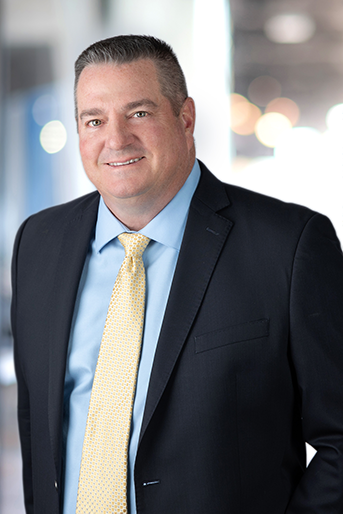How Servicers are Able to Assist With Distressed Sub-Prime Portfolios

Steve Katz
Hi, everybody, and thanks for joining us today to listen in on our Hilco Global Smarter Perspective podcasts. I’m your host, Steve Katz. And if this is your first time with us the well then welcome, we’re glad you could tune in. Today we are going to be talking about the rising incidence of subprime loan delinquencies, particularly as they pertain to auto and other transportation portfolios. And we’ll be exploring effective remedies for dealing with those situations with our first time guest, Buddy Beaman, who is executive vice president and chief operating officer at Hilco receivables. So buddy, thanks for joining us today on the podcast.
Buddy Beaman
Thanks for asking. I’m glad to be here, Steve.
Steve Katz
Yeah, well, we’re glad to have you on and some interesting stuff to talk about. I mean, obviously, you know, we’re going through a pretty unusual time right now economically in the US. You know, not only do we have higher interest rates and inflation, continuing to take a toll on consumers and businesses, but you know, residual effects of COVID. And some of the impacts of the war in Ukraine, we’re even feeling here. So can you kick us off today by talking about what’s been happening with subprime auto bonds, and how that’s tied to the delinquency rates that we’re now reading and hearing so much about?
Buddy Beaman
I’m sure at the end of this really, like you said, it started kind of back in the, in the COVID days, with with delinquency, they were a little bit camouflaged during that period, where, you know, the lenders were, were having subsidized, you know, payments for the for people and whatnot. So delinquencies really were occurring, but they were not showing on the books. And what we’ve seen is over, over time, really the supply chain issues that we had, it’s all coming to a head, and you’ve got the economy and the growing delinquencies now. And, you know, we’ve had some big used car companies and leasing companies that we either have been involved in that have been falling apart. And, you know, really, over the course of probably the last six to 12 months, we’ve seen an increase in those kind of companies falling apart. And really, we’re starting to see kind of a huge boom, at that side of the world. A lot of it started back, you know, 2020/21, and that in that timeframe, but it’s been growing and, you know, we recently in the past six weeks, like I said, we’re starting to see more and more things from companies like JP Morgan, BMO, Cap One, where these loans that they put into the subprime auto lenders, they’re not backed by good assets anymore, because of the problems that these these auto lenders are having. So, you know, obviously, on the bank side of the world, their growing concerns are, were on their radar a lot more with restructuring companies and the banksat this point.
Steve Katz
Yeah. Makes a lot of sense. And I think, as you said, a lot of people didn’t necessarily see coming, but when you think about it, it’s not surprising, given everything that’s taken place. So let me ask you this, when when a lender does fail in a situation like this, there’s clearly a need to react quickly and limit downside risk. Are there? Are there warning signs, you know, that indicate that something’s developing? Or is it all very stealth, you know, for a while, for the lender? And then you know, if so, or if not on that, how to, how do banks and stakeholders get out ahead of the situation so that they’re not really finding themselves in a position where they can’t recover?
Buddy Beaman
Yeah, that’s a great point. A big part of the problem is when a lender fails, there, there’s a lack of process that continues for the borrowers and whatnot. And we’ve seen companies where they get to a point where by the time it starts failing, they just throw the keys back to the lenders and say, have at it, and what we see is that they become a little bit adverse with each other, right? And the communications between the company and the lenders really breaks down. And then from that point, there’s a lot of confusion. You know, these companies aren’t made to work in a distressed asset situation. So like the the used car company or the leasing company or whomever, their customer service, their accounts receivable, their staff, they all they try to shrink their expenses, and all they’re doing is, is hurting the the asset receivable that’s there for this for the bank to collect out on. And what happens is all that pushes back to the borrowers, and those are the people that are really at risk, right, and the company itself continues to fail continues to cut expenses, that doesn’t help and they don’t really know what they’re doing in this distressed situation. All of this causes disruptions and processes and, you know, really the communication between the customer and the company really starts to fail. And what happens at the end of that, is there’s really a lack of direction or understanding of where these customers need to go and how they make their payments and everything else in it, it really hurts these monthly payments or lease installments.
Steve Katz
Yeah, yeah, yeah, you can see how that cycle would kind of just repeat and amplify the problem. So if I just want to make sure I got so if I’m a borrower, right, you’re saying I might not actually even receive my normal bill in the mail? Or a reminder saying that in my payment?
Buddy Beaman
Yeah, absolutely, absolutely. Because what happens is, like I said, when the when they when they start to reduce staff, things go wrong, right. Like, people forget things, you don’t transfer to another person, when the company, all they’re looking at is we’re starting to fail, and we cut expenses, they don’t specialize in distressed, you know, portfolios, they know what they’re doing when things are running well, but then when they make these adjustments, that’s when we really have some problems.
Steve Katz
Sure, sure. And the bondholders themselves, right? In these portfolios, are they even aware of what’s going on at that stage? Or, you know, does it take a while for them?
Buddy Beaman
Yeah, it takes a while because, you know, the bondholders are behind the banks, and a lot of cases and the banks are the ones getting the communication the bondholders are, it’s not a big priority for them, it’s not on their radar as much and they get a little bit by the time they’re brought in and they’re notified, it’s, it usually is a, it’s not at a good place for them.
Steve Katz
Yeah. So then what’s the advice on what creditors should be doing and the steps that they should be taking, when they do become aware of this type of situation that’s in progress.
Buddy Beaman
Right. So for for the bondholders, you know, like I said, getting ahead of the curve a little bit and moving up the timeframe, they can do things early on, and bring people in to, you know, identify, because a lot of times when these companies, used car companies, especially, we’ve seen a lot of fraud and cover up, because it’s easy to do, and which unfortunately, when something becomes easy to do, it means people get tempted to do it, right. And, you know, having somebody come in and you know, understanding kind of a distressed asset and what to look at, you can bring people in that will look at this stuff early like and use the base calculations and the borrowing base and go into, you know, certain indicators that will allow us or allow people that do this to know what they’re looking for. And, run reports and not be disruptive to the process, you kind of looking in the background, but it’s really having somebody that can continue to be aware and understand the situations and really know what what could be a potential problem. And then you identify it early, and you can take steps to take care of it before you get to a point where they are, you know, throwing you the keys to the company.
Steve Katz
So then your you know, your team at Hilco Receivables, I know often act as a substitute or other servicer in these types of situations. So when you come in, I’m assuming some of the things you just talked about is some of what you guys will do. But from there, how do you do you really step into the lender’s role in terms of taking over that billing process and making sure that you’re following up with borrowers to ensure the payments or what you know what what happens then?
Buddy Beaman
Yeah, so first, the the first phase is kind of running a parallel process and what we call it and the situation is being a hot servicer. So we’re running. We’re running these checks and these reports and whatnot behind the scenes. We’re not actually doing we’re not not actually doing the billing or working at the beginning, we’re really running a parallel process to while we watch and make sure that those things are happening and, and are not happening, I should say, you know, we don’t want them to stop so that we can be in there. And when things do go sell, we can act very quickly and jump on it. And it, we don’t lose that, you know, we don’t lose that timing, that’s so critical. Because what we see a lot is, this is all about timing. If you get if you get too far down the process, and you’ve lost communications, it’s very hard to get it back or payment streams are disrupted, it’s very difficult to restore them all. If you stay in front of it, then you can redirect and maintain those and maintain the integrity of the portfolio. So you know, you got to bring in experts that know this. And that’s the problem with these companies is they do know the business, like I said, and they understand it when it’s going well. But when it goes south is when they have trouble. You need somebody that’s licensed and bonded to do this, like Hilco.
Steve Katz
Right? And then you got, you know, in many cases, not everywhere, but many cases. So you have borrowers from all over the countries that you need those types of licenses to, right, it’s not just necessarily a local license, you have to be licensed around the country. And
Buddy Beaman
yeah, absolutely. You know, because there’s a lot of ins and outs, you need to be a nationally licensed and bonded agent to do this servicing. Because even if you’re, for example, companies build in Texas, and most of your work is done in Texas, you may have to repo vehicles in California, which is a whole new set of rules and whatnot. So even if you’re a local used car, or a leasing company, you still might need a national presence based on the the where, where things may go and what they may have.
Steve Katz
Very interesting. All right, well, so we’re just about out of time. Anything else you wanted to add to the conversation that you didn’t talk about that we should we should have included?
Buddy Beaman
Um, you know, I think, you know, one other thing that I think it’s important to know is what we’re seeing right now is we work directly with a lot of lenders and restructuring firms. And we’re seeing a lot of activity in this in this space right now. And I think for us, the best thing for people to understand or to know, is catching things early. It’s it’s kind of like any trouble, right? Whether it’s somebody’s health or whether it’s the portfolio’s health you, the earlier you catch it, the better your outcome is the later you catch it. Usually it’s not a good result. And we pretty consistently are seeing that across the board with the banks and in the restructuring firms that we’re working with.
Steve Katz
Yeah, yeah, it makes a lot of sense. Well, listen is really relevant information given what’s going on right now. And I’m sure a lot of listeners, unfortunately, might be going through something similar to this. So with that in mind, I’m guessing you’ll probably get some calls. Some people want to reach out to you and how can the best get in touch?
Buddy Beaman
Yeah, I’m happy to connect with anyone who has questions or concerns about these or any other types of portfolios right now. The best way to reach me is at BBeaman@hilcoglobal.com or you can give me a call at 469-400-4842. You can also feel free to reach out I’m on LinkedIn is another good source to reach me as well.
Steve Katz
Okay, great BBeaman@hilcoglobal.com. Appreciate that. Great to have you on buddy. And we’ll get you back on soon. And listeners. As always, we hope that this smarter perspective podcast provides you with at least one key takeaway that you can put to good use in your business or share with a colleague or client to help make them that much more successful moving forward as well. And remember that you can check out more great podcasts and articles featuring timely insights from local experts like Buddy at HilcoGlobal.com/smarter-perspectives. So until next time for Hilco Global, I’m Steve Katz.




